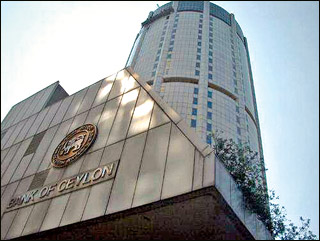August, 17, 2020

Industry leader, the Bank of Ceylon is leading the way to help the nation in this challenging year to achieve the desired goals of the country as well as those of all its stakeholders.
The COVID -19 pandemic geared down the growth of all most all of the economies in the world and safety measures taken to maintain the spread of the virus has led to a considerable level of disruption to all business operations. Domestically, the pain resulting from COVID -19 spread to many areas threating the sustainability of the economy amid challenging macroeconomic conditions.
In this context with the imminent need of providing relief to gear up business and economic activities which were held back, the Government and the Central Bank of Sri Lanka came up with various relaxations of regulations to both corporate and individual customers. During this difficult situation the Bank augmented all its capabilities to cater to the customer in the best possible way while continuously delivering the banking services with due care on health measures.
The Bank’s results for the first half of the year was delivered among these unprecedented challenges. The Bank has reported Profit Before Tax (PBT) of Rs. 6.9 billion and Profit After Tax (PAT) of Rs. 5.8 billion for 1H-2020. The total income of the Bank for the period was Rs. 118.3 billion with marginal increase of 2% on YoY. The Bank’s net interest income showed an 18% decrease YoY mainly due to accounting for the day one loss on COVID -19 moratorium and increase in interest expense in line with growth of the deposit base. Moratorium impact was accounted against the interest income based on the modification method given in the Sri Lanka Financial Reporting Standard (SLFRS) 09 and resulting day one loss of Rs. 6.0 billion has been adjusted to interest income.
The non- fund base for the period amounted to Rs. 8.3 billion showing an increase of Rs.3.2 billion YoY , exchange gain of Rs. 3.3 billion which resulted during the period mainly contributed to this growth. However, the main non- funded income source, fee and commission income showed a dip of 15% as international trading and local business operations were disrupted along with COVID-19 pandemic.
Showing the prudential management approach of the Bank, operating cost came down by 7% YoY and many cost controlling and rational approaches in expense items were adopted in this extraordinary situation. However, the Bank had to make an impairment charge of Rs. 14.7 billion for the loans and advances by accounting for a significant increase in credit risk.
Among all these challenges the Bank’s assets base grew by 11% to Rs. 2.7 trillion, backed by increase of 13% in the loan book. The Bank’s loan book stood at Rs. 1.8 trillion and both Government and private sector lending have contributed to this growth.
The Bank’s deposit base which represent 23% of the industry has increased during 1H 2020, despite of the low interest rates prevailing in the market. The Bank’s deposit base of Rs. 2.2 trillion represents 32% of Current and Saving deposit (CASA) base which generates funds at low cost.
The Bank’s Tier I Capital and Total Capital ratio stood at 10.61% and 14.7% respectively as of end 30th June 2020, which are above the regulatory norms. The Bank’s liquidity position was also at a favorable level by reporting 31.3% statutory liquid ratio above its norm of 20%. However, the ROA and ROE of the Bank showed a declining trend in direct correlation to Profit.
Video Story